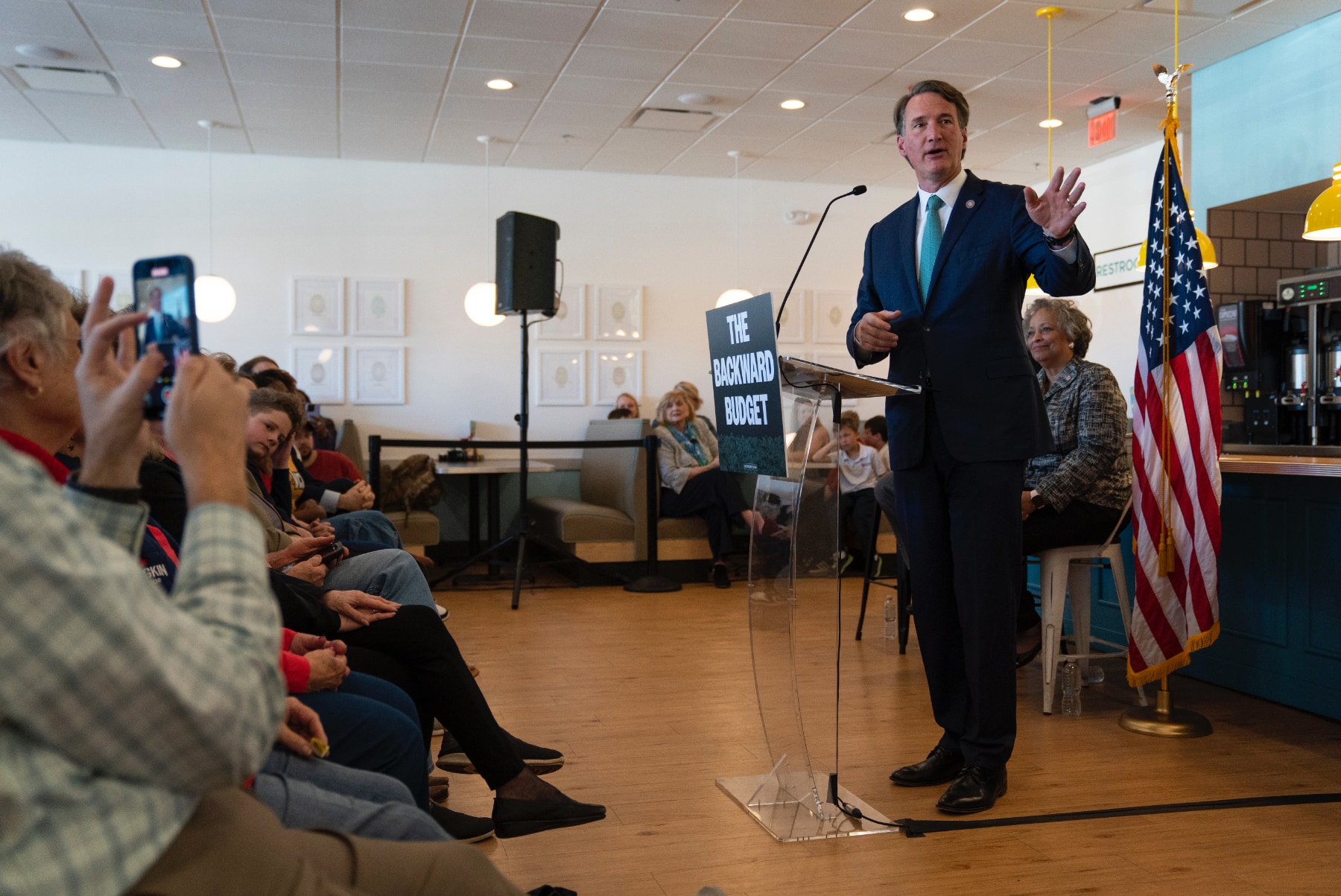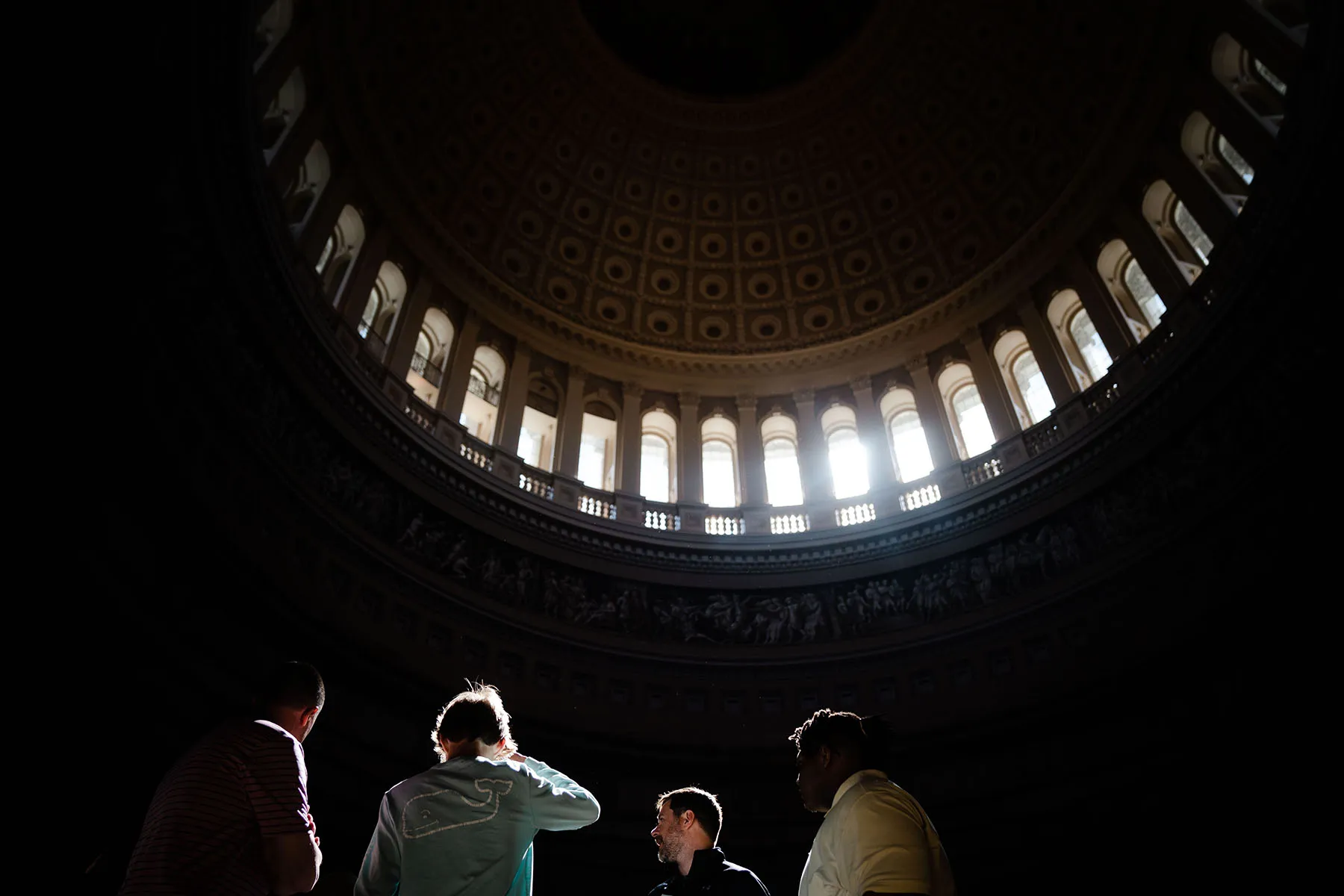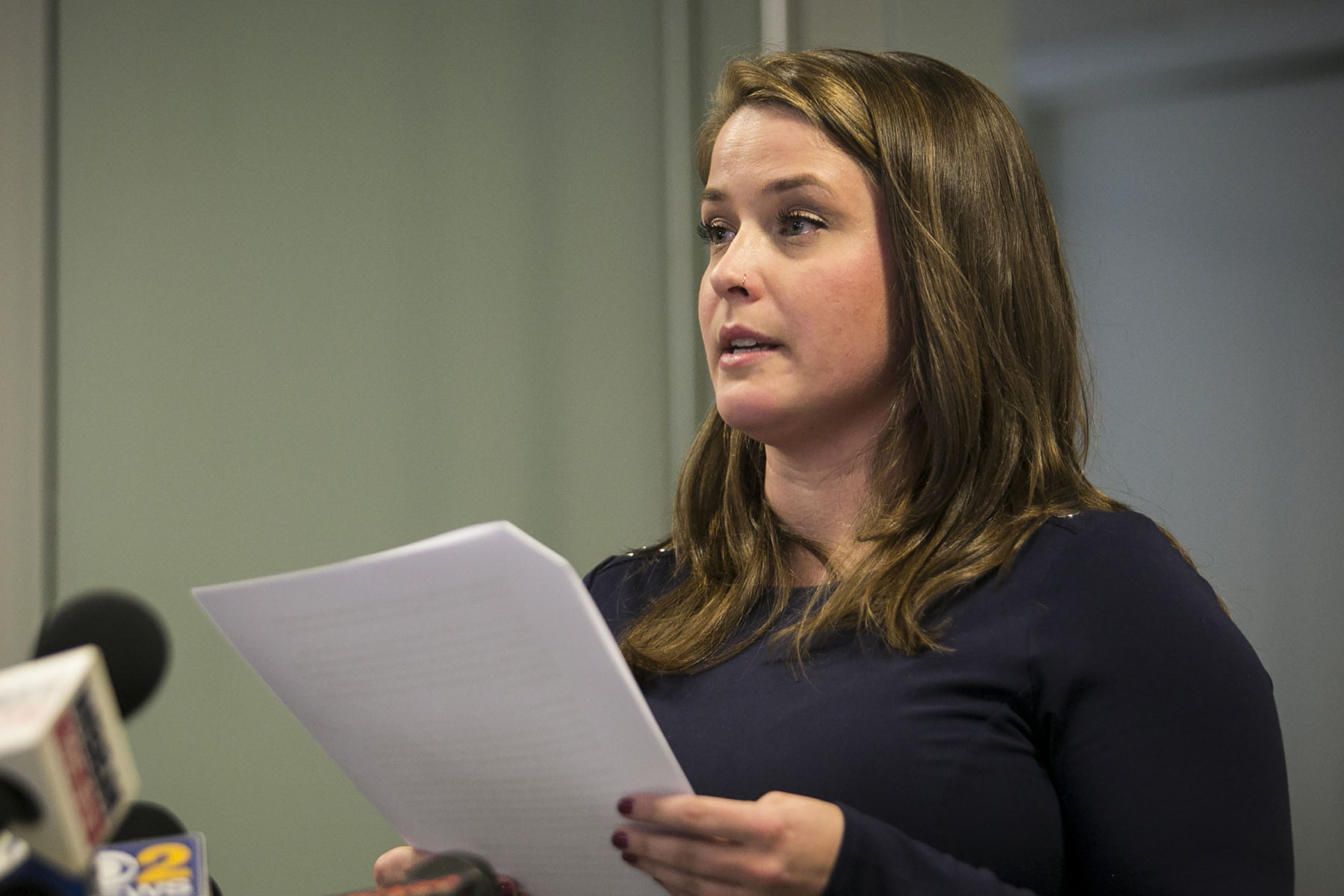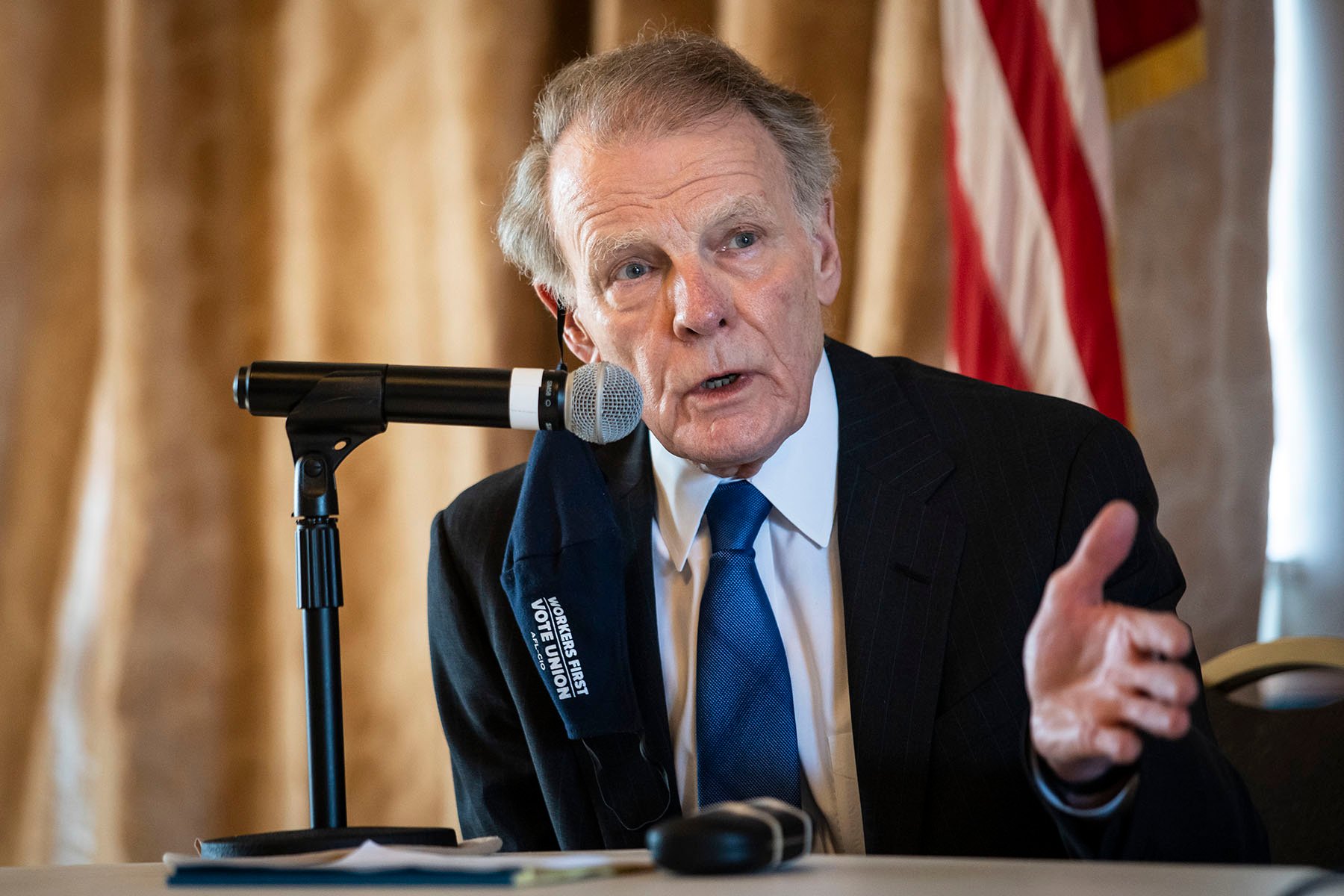The moms who left Texas to defend its future: 'She needs a democracy to grow up in'
When Erin Zwiener finished taking the bar exam last Wednesday afternoon and walked out into the Texas heat, the aspiring lawyer was looking forward to one thing: Enjoying the final days of summer vacation with her daughter before she begins second grade.
Then she checked her phone.
Zwiener is a Democrat in the Texas House of Representatives, where since 2019 she has represented a district south of Austin that includes most of Hays County. She saw missed messages about Texas Republicans’ release earlier that day of a new voting map designed to flip five seats in the U.S. House currently held by Democrats — satisfying a demand that came from Republican President Donald Trump’s White House. Zwiener would need to head to the state Capitol, where her caucus would convene that evening to discuss how to respond.
The meeting extended late into the night, and party leaders presented their options, given their minority status. After weighing the pluses and minuses, more than 50 Democratic lawmakers decided they would leave the state they represent to deprive Republican leaders of the quorum needed to approve the new Trump-requested congressional map. With a special legislative session already underway, most traveled together to Illinois, while others headed to New York and Massachusetts. They would close their summers by playing canaries in the coal mine, delivering the message to key Democratic-led states that GOP redistricting efforts in ruby-red Texas would soon arrive at their doorsteps if they do not take action.
“We can’t go gently, we have to fight,” Zwiener told The 19th earlier this week from New York, where she decamped after holding a Saturday town hall on the proposed redistricting with her constituents.
“I haven't gotten to have much of a summer with [my daughter] because I've been studying for the bar,” she added, “but I had made her a big promise that we would go to a water park after I finished the bar, and I was able to do that this weekend before leaving — so I'm grateful we got to have our big summer adventure.”
The Texas lawmakers are now at the center of a national debate about how Democrats should respond to the White House-driven push to shore up Republicans’ slim and endangered U.S. House majority with unprecedented, mid-decade redistrictings that many believe run afoul of state constitutions.
Though leaders in the Democratic Party are more likely than Republicans to favor nonpartisan redistricting done by commissions and other independent entities, Texas lawmakers like Zwiener are warning that if Democrats do not respond by redrawing maps in Democratic-led states like Illinois, Massachusetts and New York with large left-leaning populations, the GOP will be able to cement a House majority that does not reflect the electorate. It would also allow the Trump administration to avoid accountability: The presidential impeachment process, for example, begins in the House.
“If Texas is going to try and break the democratic process in this way, then other states are going to have to counterbalance that in order for our democracy to survive,” Zwiener said. As they began what she described as “outreach” in their chosen states, Republicans in Missouri indicated they are considering redrawing maps there as well.
“Make no mistake about this,” Zwiener said: “This is an attempt for Donald Trump to avoid accountability in Congress.”
This isn’t the first time that Zwiener has left Texas as part of a legislative Hail Mary by Democrats to prevent the passage of GOP bills that they see as threats to democracy.
Texas House Democrats fled to Washington in 2021 on the front end of another special session called by Republican Gov. Greg Abbott to consider legislation that included a restrictive voting measure, new prohibitions on abortion and a ban on transgender students participating on sports teams that matched their gender identities. They met with their Democratic counterparts in the U.S. Congress, along with then Vice President Kamala Harris, whose portfolio included voting rights, and she compared the Texas lawmakers to the slavery abolitionist Frederick Douglass, saying: “Defending the right of the American people to vote is as American as apple pie.”
Zwiener’s daughter was 3 then, and it was earlier in the summer, so she brought her along to the nation’s capital. She colored quietly during meetings, her pint-sized presence a reminder of the future they were fighting for. The standoff lasted five weeks; the GOP bills were enacted once enough lawmakers returned to Texas. This year, with back-to-school looming, Zwiener made the difficult decision to leave her daughter at home with her father, not knowing how long she might be gone.
I can’t think of any other thing that would pull me away from my kid right now, but this is important — she needs to have a democracy to grow up in."
“I'm sad that I won't be there to see her after her first day of school,” Zwiener said, noting she hoped to use video calls to help pick out an outfit and get the post-first-day download. “I can’t think of any other thing that would pull me away from my kid right now, but this is important — she needs to have a democracy to grow up in.”
There is a lot at stake for the Texas Democrats who know, on some level, that they will be unable to delay the vote on the map forever. The Texas House on Monday voted 85-6 to issue arrest warrants for their return. The move was mostly symbolic since the lawmakers do not face civil or criminal charges and the warrants only apply within Texas — until U.S. Sen. John Cornyn asked Trump’s FBI to intervene. Texas Attorney General Ken Paxton said that if the Democratic lawmakers do not return by Friday, he will ask a court to declare their seats vacant, even though the Texas Supreme Court affirmed in 2021 that the state’s constitution allows for quorum breaks, albeit with some consequences. The lawmakers face a $500 fine for every day they do not show up for the special legislative session — it must be paid from personal funds, and their base salaries for serving are $7,200 a year, with per diems for added legislative days.
When state Rep. Linda Garcia, a first-term Democrat who represents parts of east Dallas and nearby Mesquite, decided that she would bring her 9-year-old son with her to Illinois — she thought being away from him for the regular, 140-day legislative session was already too much — she “did my absolute best to prepare him for any possible scenario that would take place,” she said. Garcia is prepared to enroll her son in school in Illinois or home school him if the lawmakers remain outside of Texas as the school year begins.
“If we get to the airport, there may be people with cameras; there may be flashing lights. You may be printed on paper or on TV, and your friends might see it, and people may criticize what we're doing. They're going to say I'm a criminal; I could get arrested in front of you,” Garcia told him. “I went through the best and the worst, absolute worst case scenario, which the ultimate worst case would be getting removed as a member — and he turned and looked at me, and he's like: ‘That doesn't really sound like the worst case to me.’”
Still, Garcia said, she did not hesitate to commit to leaving Texas when it became clear it was their best option to draw attention to what is happening in her state — or about bringing her son along for a real-life lesson in civics and democracy.
“I really understood that this isn't about me, and that I will have to face those consequences when those consequences come. This is about my constituents, but also the state of Texas, and it is about the United States of America and where it is headed,” Garcia said. “I cannot live in a world where I think out into the future and look back and didn't take this step over money.”



 Virginia Gov. Glenn Youngkin speaks after the end of the Virginia legislative session, addressing the media at Eggs Up Grill in Richmond, Virginia, on March 14, 2024. Minh Connors for The Washington Post via Getty Images.
Virginia Gov. Glenn Youngkin speaks after the end of the Virginia legislative session, addressing the media at Eggs Up Grill in Richmond, Virginia, on March 14, 2024. Minh Connors for The Washington Post via Getty Images. Tour groups walk through the rotunda of the Capitol. (Kent Nishimura/Los Angeles Times/Getty Images)
Tour groups walk through the rotunda of the Capitol. (Kent Nishimura/Los Angeles Times/Getty Images) Alaina Hampton, a campaign worker for Illinois Democrats speaks during a news conference in Chicago in February 2018. Hampton addressed reporters after House Speaker Michael Madigan dismissed political consultant Kevin Quinn after an
Alaina Hampton, a campaign worker for Illinois Democrats speaks during a news conference in Chicago in February 2018. Hampton addressed reporters after House Speaker Michael Madigan dismissed political consultant Kevin Quinn after an  Illinois’ former Speaker of the House Michael Madigan speaks during a committee hearing in February 2021 in Chicago. (Ashlee Rezin Garcia/Chicago Sun-Times/AP)
Illinois’ former Speaker of the House Michael Madigan speaks during a committee hearing in February 2021 in Chicago. (Ashlee Rezin Garcia/Chicago Sun-Times/AP)